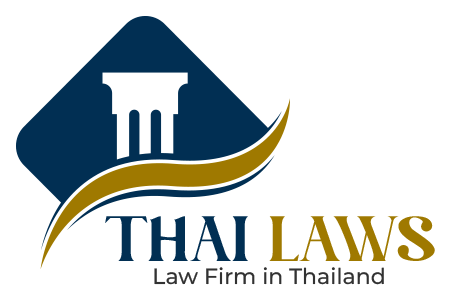Last Will and Testament in Thailand. The law governing wills and succession in Thailand is rooted in the Thai Civil and Commercial Code (CCC), Book VI: Succession. A will (or testament) is a unilateral legal declaration in which a testator dictates how their estate should be distributed upon death. While Thailand recognizes both intestate and testate succession, foreigners residing in or owning assets in Thailand are strongly advised to execute a valid Thai will to ensure clarity, efficiency, and enforceability in estate distribution.
This article provides a detailed explanation of the rules, structure, and strategic considerations for drafting a last will and testament in Thailand, with special emphasis on foreign residents and transnational estates.
1. Legal Framework
1.1 Applicable Law
Succession matters in Thailand are governed by:
-
Sections 1599–1755 of the Civil and Commercial Code (CCC)
-
Procedural aspects are governed by the Civil Procedure Code
-
Foreigners with assets or heirs in Thailand are subject to Thai law for assets located in Thailand, irrespective of the testator’s nationality or domicile, unless international treaties or private international law apply otherwise
Where foreign and Thai legal systems interact, the conflict of law rules under Thailand’s Act on Conflict of Laws B.E. 2481 (1938) may apply, particularly where a foreign will is involved.
2. Who May Make a Will
2.1 Capacity
Under Section 1703 of the CCC, a person may make a will if they:
-
Are at least 15 years old
-
Are of sound mind and not adjudged incompetent or quasi-incompetent
-
Make the will freely, without coercion, fraud, or undue influence
A will made under duress or mental incapacity is void and unenforceable.
2.2 Foreigners and Jurisdiction
Foreigners may make a Thai will for their movable and immovable assets located in Thailand, regardless of residence. However, a foreign will concerning Thai property must comply with Thai formality rules or be accepted by Thai courts under conflict-of-law rules as a valid testament per the law of the testator’s nationality or domicile at the time of execution.
3. Types of Wills in Thailand
The CCC recognizes several types of wills:
3.1 Written Will (Section 1656 CCC)
This is the most commonly used format, subject to the following requirements:
-
In writing
-
Dated and signed by the testator
-
Signed in front of at least two witnesses, who must also sign
No notarization is required, though it is advisable for evidentiary purposes. Witnesses must be at least 20 years of age and not beneficiaries under the will.
3.2 Holographic Will (Section 1657 CCC)
-
Entirely handwritten by the testator
-
Must include the date and signature
-
Requires no witnesses
This form is convenient for urgent situations but may be contested if authenticity is challenged.
3.3 Public Will (Section 1658 CCC)
-
Declared orally before a District Officer (Amphur) and two witnesses
-
Officer records the declaration in an official register
This type offers maximum legal certainty but is less commonly used due to procedural formality.
3.4 Secret Will (Section 1660 CCC)
-
Written and sealed by the testator
-
Delivered to a District Officer in the presence of two witnesses
This type is rarely used and presents practical complications during probate.
4. Will Content and Clauses
A Thai will typically includes:
-
Identification of testator and domicile
-
Revocation of prior wills
-
Appointment of executor
-
Disposition of assets: specific legacies, residuary estate
-
Appointment of guardians (if applicable)
-
Conditional or substitute provisions
-
Instructions for debt payments and funeral rites
Wills may also address digital assets, joint ownership, and business succession, though clarity in terms of Thai property law is essential.
5. Executors and Beneficiaries
5.1 Executor
-
May be an individual or legal entity
-
Responsible for administering the estate, paying debts, and distributing assets
-
Requires court appointment (Section 1711 CCC)
-
A foreign executor may be appointed, but practical execution may require local representation
5.2 Disqualified Beneficiaries
Under Thai law, the following are prohibited from inheriting under a will:
-
Individuals who intentionally caused the death of the testator
-
Witnesses to the will (if they are also beneficiaries)
-
Monks (Section 1603 CCC), although they may inherit on behalf of a temple
6. Probate Process and Court Involvement
6.1 Filing Petition for Probate
The executor or heir files a petition in the Civil Court (Wills and Inheritance Division) to:
-
Prove the validity of the will
-
Obtain appointment of executor
-
Begin administration of the estate
Courts require:
-
Certified death certificate
-
Original will and translations (if in a foreign language)
-
Identity documents of executor and beneficiaries
-
Inventory of Thai assets
6.2 Notification and Objection Period
Heirs-at-law and interested parties are notified. If uncontested, the court may grant probate in one hearing. If challenged, hearings and evidentiary proceedings may follow.
7. Intestate Succession and Forced Heirship
7.1 Intestate Rules
If a person dies without a valid will, Thai intestacy rules (Sections 1629–1630 CCC) apply. Heirs inherit in the following order:
-
Descendants
-
Parents
-
Full siblings
-
Half-siblings
-
Grandparents
-
Uncles and aunts
Spouses are also heirs and share according to rules in Section 1635.
7.2 Forced Heirship
Unlike some civil law jurisdictions, Thailand does not have mandatory forced heirship rules, and a testator may freely disinherit statutory heirs under Section 1607 CCC, provided it is clearly stated in the will.
8. Foreign Wills and Conflict of Laws
Foreign wills may be recognized in Thailand if they comply with:
-
The law of the testator’s nationality
-
The law of the testator’s domicile or habitual residence at the time of execution
-
The law of the place where the will was made
However, Thai probate courts may still require:
-
Thai translations
-
Proof of execution standards in the foreign jurisdiction
-
Legalization or apostille of documents
Wills not translated or notarized properly may be rejected or cause substantial probate delays.
9. Revocation and Amendment
9.1 Revocation
A will may be revoked:
-
Expressly by a subsequent will
-
By physical destruction with intent to revoke
-
By a public declaration at the District Office
Partial revocation is allowed only if clearly expressed.
9.2 Codicils
Codicils are allowed under Thai law, but they must meet the same formalities as a will. Informal amendments or marginal notes have no legal effect.
10. Practical and Strategic Considerations
-
Prepare a separate Thai will for Thai assets; do not rely solely on foreign wills
-
Ensure witnesses are competent and not named as beneficiaries
-
Register the will with a trusted lawyer or executor for safe-keeping
-
Clearly identify all Thai and foreign assets, especially real estate, bank accounts, and company shares
-
Consider potential inheritance tax, although Thailand does not currently impose comprehensive estate tax except in specific high-value inheritances under the Inheritance Tax Act B.E. 2558
-
Coordinate wills across jurisdictions to avoid contradictions or double probate
Conclusion
A carefully drafted and properly executed will in Thailand provides clarity and legal certainty in the administration of a deceased person’s estate. While Thai law offers testators wide latitude in disposing of their property, compliance with formalities is critical for enforceability. For foreign nationals, the use of dual wills—one in Thailand and one in the home jurisdiction—can help avoid probate delays, jurisdictional disputes, and unintended disinheritance.
Legal consultation is strongly advised when drafting, interpreting, or enforcing a last will and testament involving Thai property or multinational estates.



